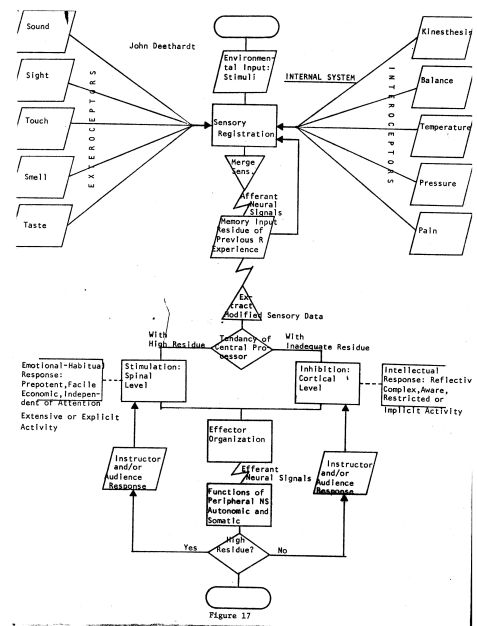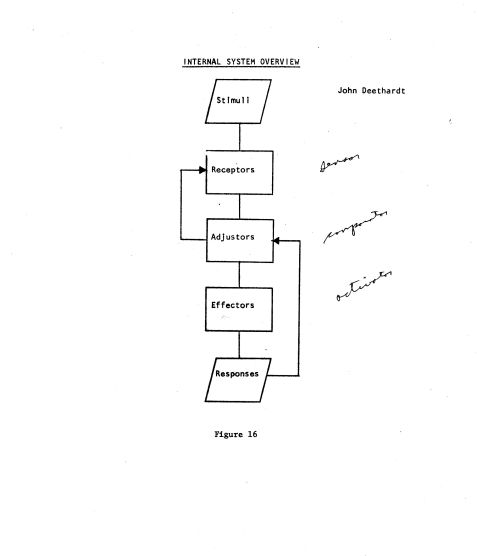Herein Lies the Subject Matter of a Whole Curriculum for Communication Education
Communication is:
- a dynamic process
- emergent
- containing unprecedented elements
- a contingent sequence of events
- interactional
- interpersonal
- intrapersonal, subjective narratization, called thought
- within an environment of ever changing situations, conditions
- creating shared meaning,
- succeeding in its stated aims, goals, or objectives
- or, failing, if meaning is not created and shared —NOT communication—
- by shared codes,
- through a verbal system of symbols, and emblems that appear to be symbolic
- and through a less systematized system of nonverbal behaviors and self-expressive representations
- intentionally sent
- transmitted with previous knowledge of idea, desire, and hoped-for outcomes
- received as intentional,
- derived by another as the idea, desire, or
hoped-for outcome of the sender or source - consciously sent and received,
- fully aware of —able to articulate— the ideas, desires and outcomes at the level of speaking them, and received by others with an awareness of the level of ability of the receiver to articulate what the sender desires, believes, thinks, or wants as an outcome
- face to face,
- in person with at least one other present
- baby, man, woman, or dog
- and with the potential for feedback.
- from another with the capability of returning by word or deed the intent of the communicator,
- TO THE SATISFACTION OF THE SPEAKER!
WHEW! That’s a lot to ask!
Is it any wonder………..
Great Oratory
These are the conditions that elicit great oratory, according to the ancient philosophers of communication, and, I must add, that underlie eloquence, which I look for in speaking today.
Is this too much to hope for? A consumation devoutly to be wished!
- An able person, melding passion, intellect and history,
- with the freedom to speak,
- a high moral purpose,
- confronting a great issue,
- in a situation that demands critical and bold decision,
- before an intelligent and educated audience capable of judging,
- and with an opponent of equal skill.
Who, in your opinion, among our national leaders has qualified as a great orator, performing at that high level of competence?
One late night comedian-host of a talk show has a comic segment showing great speeches in our history compared to the present incumbent (of October, 2008 and the past eight years). Why does it get laughs? The dramatic contrast! Apparently such oratorical arts and skills are not valued in the political leadership of United States society.
GIVEN ALL THAT, ANYONE WHO HOPES TO SUCCEED AT COMMUNICATION NEEDS AND SHOULD WANT TO STUDY THE ARTS AND SCIENCES OF COMMUNICATION, AND ENGAGE IN PRACTICAL EXPERIENCES, under competent guidance, TO PREPARE FOR THE WORLD STAGE.
Could we say, given its complexity and without concentrated study and practice under critical feedback, that communication, especially in the most crucial contexts, is likely to fail?
Look at the following schematic of a systems analysis approach to the internal processing system that exists in the human body to support communication, adding to the total complexity of this human and humanizing phenomenon which everyone needs to appreciate.

The following is a simplified view of the internal system for communication.
The essential internal system.

Created on … March 14, 2009